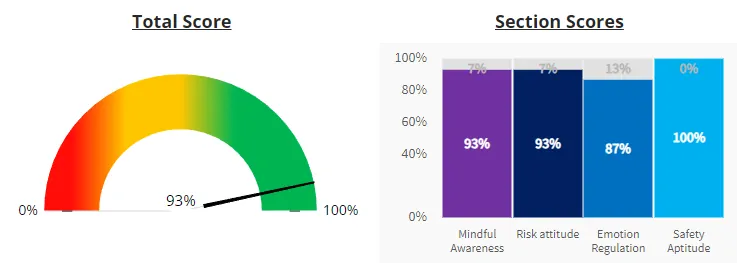A good Safety Mindset leads to great risk decisions, less incidents and lower stress.

With $585M in compensation, a 53% increase in psychological injuries and $2.8B in mental illness impact, the need for action has never been higher
Negative attitudes are toxic and dangerous. A positive, adaptable mindset leads to a great safety culture, reduces anxiety and underpins productivity
New legislation requires all Australian businesses to legally comply to manage psychosocial risks under WHS law and international ISO standards
Safety starts with Leaders. The ability to provide trust and stability to the workforce in essential to meet today's standards
We take a science-based approach to improve safety culture through mindset change.
We call this approach Aframes Mindful Safety ™ – our proprietary, evidence-based and empirically validated approach to high performance safety.
Aframes Mindful Safety™ targets the thinking processes that drive the identification, consideration and assessment of risk. The result is high performance safety behaviour, reflected in increased:
Talk to us today about how our approach can help improve your safety metrics.
Awareness is the foundation of any psychological safety effort. Encouraging a more mindful approach helps people recognise risks in the workplace and manage them. Mindful awareness of risk, both physical and psychological, means employees are constantly: attuned to their environment; aware of the hazards; and proactively controlling risk in their workplace.
Emotional control is crucial for making rational safety decisions, especially in difficult situations. Psychological safety training enables individuals to remain calm and composed when faced with safety challenges. This involves: managing stress; avoiding impulsive reactions; and making good risk-based decisions that prioritise safety over convenience or speed.
The safety culture that employees witness in an organisation shapes their attitudes towards safety. Our psychological safety training emphasises the importance of fostering positive safety attitudes, where safety is not a “have to” but a “want to” behaviour. When safety becomes an integral part of the culture, people thrive, and productivity is optimised.
Safety aptitude refers to the knowledge and experience that individuals bring to their roles when they maintain a safe workplace. Psychological safety training provides employees with the necessary skills as well as information to perform their duties safely. This includes understanding safety procedures and being aware of potential hazards in case of an emergency.
Enter your details below to register your interest.
"*" indicates required fields